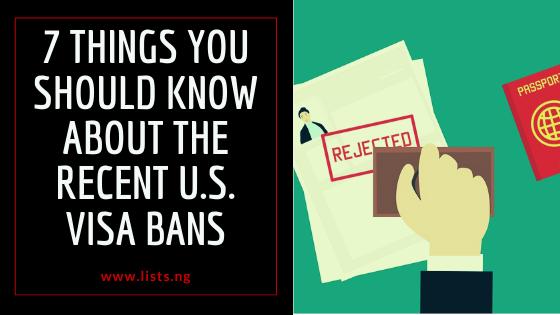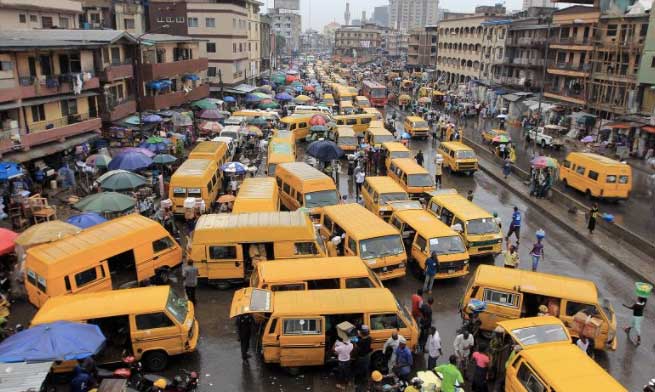In just over a week, the Trump administration has imposed visa bans on visitors and immigrants coming into the United States. The first came on January 23rd with the birth tourism ban, which is meant to stop pregnant women from traveling to the US for the sole purpose of giving birth and getting an automatic US passport for their babies. Nine days later, on January 1, the US government announced that Nigeria was part of the five countries that will no longer be eligible for immigration visas.
President Donald Trump first introduced a travel ban in 2017, closing US borders to citizens from seven countries, most of them with Muslim majorities earning the name ‘Muslim ban’ from critics.
Reactions and criticisms have trailed these bans, particularly the immigration ban, describing it as discriminatory. Others have pointed out that adding Nigeria to the list was not necessary because Nigerian immigrants in the US are considered one of the most successful and educated immigrant groups in the country. But what exactly do these bans really mean, who exactly do they affect and what are the implications. See the answers to these questions below.
This doesn’t come as a surprise
The Trump administration has for long been trying to restrict all forms of immigration into the US since it came into power. Last year, immigration laws were initiated to slow legal immigration and strengthen the Department of Homeland Security’s ability to enforce immigration laws. More so, birthright citizenship has particularly bothered Trump. He as openly spoken against it and several times threatened to stop it. Hence, these the ban and restrictions are somewhat America’s worst best secrets.
How stiff is the immigration ban
Trump is not joking with this immigration fight, so expect unflinching adherence. However, nationals of the six countries already staying in the US or those with a valid visa to come to the US will not be affected by the ban. Only those who will seek to apply as from when the ban takes effect will not have the opportunity.
Pregnant women can still travel to the United States
The birth tourism ban specifically applies to women who are solely traveling to the U.S to give birth for automatic citizenship for their babies. Pregnant women will be screened and interrogated properly on their reasons for travelling to ascertain their intentions. Hence, even if a woman is found to be pregnant and likely to deliver her child in the United States, she could still be granted a visa if she was able to demonstrate a valid reason for the travel such as visiting an ailing relative or attending a business meeting or conference.
Only applicants with “B” class visas will be affected by the birth tourism rule
Officials have stated that the birth tourism rule will not apply to foreign travelers coming from any of the 39 mainly European and Asian countries enrolled in the Visa Waiver Program, but will be targeted at applicants for “B” class visas that permit short-term stays for business or pleasure.
An African ban
It is quite clear by now that Trump is not a fan of Africa or Africans. The US president is often no holds barred when talking about Africa, and has used derogatory terms to describe the continent and the people. More so, four of the six countries are African and critics have once again labelled accusations of discrimination and racism.
The wealthy are less affected
Trump has always been against the idea of letting immigrants or anyone at all into the United States from poor and underdeveloped nations. The visa restrictions embraces people who have financial means while shunning visitors who are not well to do. As earlier mentioned, birth tourism only affects those with B class visas which means if you’re not a diplomat or wealthy enough you won’t be allowed to go to the US for child birth.
Implications on Nigeria
While the extended ban does not affect tourism, business and student travel it could however have a significant impact on US citizens who want to be reunited with family members living in Nigeria.
Furthermore, acting Homeland Security Secretary Chad Wolf stated that the barred countries simply failed to meet minimum security requirements that we laid out. He said officials would work with the countries on bolstering their security requirements to help them get off the list. These statements worsens the already damaged image that Nigeria has. This will lead to more discrimination and scrutiny on those travelling on visiting visas.



